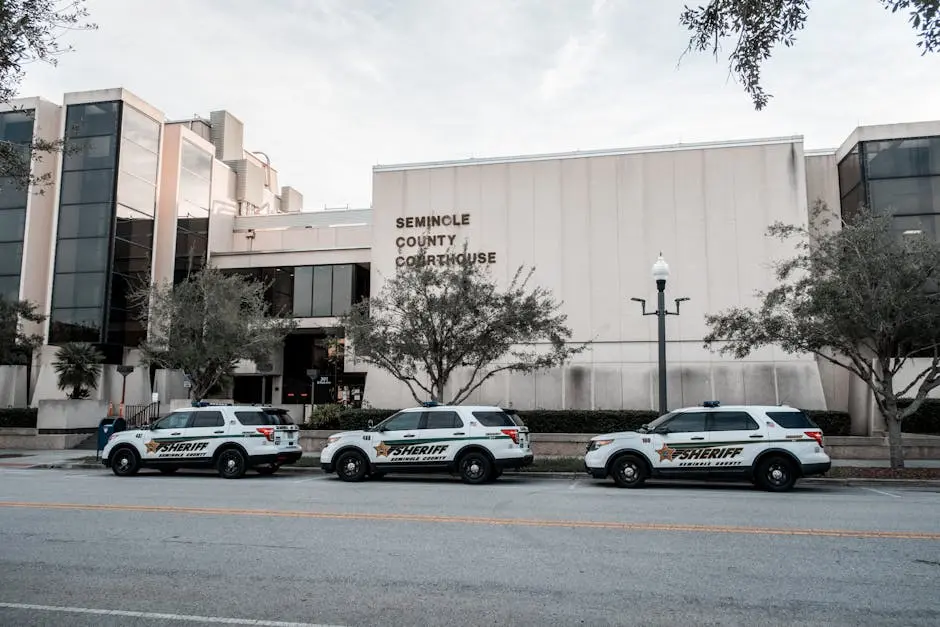The Essential Guide to Finding a Reliable Bail Bondsperson
Navigating the legal system can be overwhelming, especially when a loved one is in custody. When the need for bail arises, it is crucial to have a reliable bail bondsperson on your side. In this guide, we'll explore the key considerations and steps in finding a trustworthy bail bondsperson to help you through this challenging time.
Understanding the Role of a Bail Bondsperson
A bail bondsperson acts as a mediator between the accused and the legal system, providing the necessary funds to secure a person's release from jail. Their role involves managing the financial guarantee that the defendant will appear in court for their hearings. It's important to understand this role to appreciate the significance of choosing the right professional.
The responsibilities of a bail bondsperson don't end with providing financial backing. They also ensure that the defendant is aware of upcoming court dates and fulfills their ongoing obligations. This dual responsibility underscores why selecting someone with expertise and familiarity with the judicial system is paramount. Many individuals might find themselves overwhelmed by legal jargon or processes, which is where a competent bail bondsperson becomes invaluable. They simplify the complex world of legalities into understandable terms, making stressful times a bit more manageable.
Qualities of a Reliable Bail Bondsperson
Reliability in a bail bondsperson involves transparency, professionalism, and experience. A reliable bondsperson should clearly explain the terms of the bond, the fees involved, and the responsibilities of all parties. It's also vital for them to have a history of successfully managing cases and supporting their clients through the legal process.
Trust is a cornerstone of this professional relationship. A good bail bondsperson will be informative and upfront about their processes and fees. This transparency not only builds trust but ensures that there are no surprises along the way. Furthermore, their experience with various cases allows them to navigate any hurdles that may arise promptly and efficiently, ensuring that their clients are always in the loop about their situation.
Another key trait is empathy. While it's essential for a bail bondsperson to be business-minded, a touch of compassion can go a long way. Clients are often under considerable stress, so a patient and understanding demeanor can make a significant difference in their overall experience. Empathy, combined with professionalism, reinforces a client's confidence in the bondsperson's ability to manage their case.
Verifying Credentials and Licensing
Before engaging a bail bondsperson, verify their credentials. Ensure they possess the appropriate licenses required by the state and maintain a good record with regulatory bodies. Checking reviews and seeking recommendations can further confirm their credibility.
A crucial step is ensuring the bail bondsperson has adeqaute licensing to operate in your jurisdiction. Each state has its own set of requirements and regulations pertaining to bail bonds, and a licensed professional will adhere to these stipulations. Additionally, members of professional associations are often bound by ethical guidelines, which can provide an added layer of assurance.
Online platforms and local directories can be invaluable resources in this verification process. Websites dedicated to consumer protection and reviews offer insights into the reputation and reliability of various professionals. Before making a decision, it's worthwhile to spend time reading about others' experiences to gauge the quality of service you might expect.
Questions to Ask a Potential Bail Bondsperson
Prepare a list of questions when contacting a bail bondsperson. Inquire about their experience, the types of cases they handle, their availability, and the specifics of their services. These questions will not only provide clarity but will also help assess their suitability for your situation.
Asking about their previous cases can give insight into their expertise and areas of specialization. A professional who's adept at handling cases similar to yours might offer more specific advice and resources. It's equally important to understand their communication process - will you have a direct point of contact for updates, or will communication be handed over to another team member?
Additionally, inquire about their fee structures and payment options. Understanding how fees are determined and the flexibility in payment can help in budgeting and financial planning during this time. A reputable bail bondsperson will discuss all potential costs openly, allowing for a transparent financial relationship.
How to Identify Red Flags
Be cautious of bail bondspersons who promise unrealistic outcomes or hesitate to provide clear answers. Additional red flags include pressure to sign contracts quickly or hidden fees. Recognizing these warning signs can prevent you from engaging with a less-than-reliable professional.
Another red flag might be an exorbitantly high or low fee compared to the market rate. While competitive pricing is commendable, anything that seems too good to be true should be approached with caution. Ensuring that all terms are outlined in written contracts can prevent misunderstandings and ensure you’re not caught by surprise later on.
Unprofessional behavior, such as lack of punctuality, evading questions, or being unavailable during crucial times, can indicate a lack of commitment or inefficiency. Gathering feedback from previous clients can provide a clearer picture of their reliability and work ethics.
Making the Right Choice for Peace of Mind
Finding a reliable bail bondsperson can significantly ease the stress of dealing with legal proceedings. By understanding the role of a bail bondsperson, verifying credentials, and asking the right questions, you can make an informed decision that supports your needs. Remember, a skilled and trustworthy bail bondsperson is an invaluable ally in navigating the complexities of the legal system.

